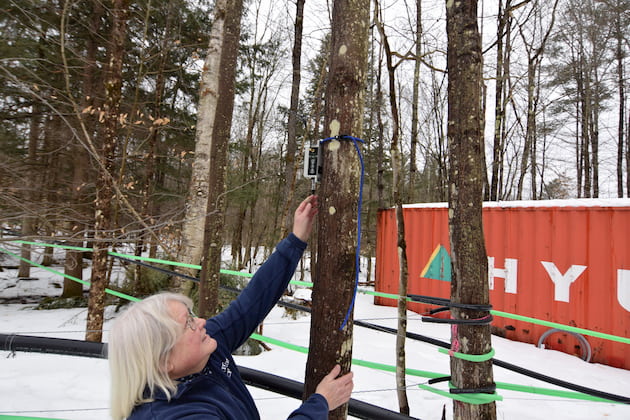Food Safety & Gov't Regulations
New round of grants available for producers
Deadline of Nov. 2 for latest grant round from USDA
By PETER GREGG | OCTOBER 6, 2020
MONTPELIER, Vt.—Better get on it.
Syrup producers have new rounds of grant opportunities coming up again through the USDA Rural Energy for America Program (REAP).
The agency’s REAP grants have fresh deadlines for 2021 funding of November 2 and March 31.
A webinar was held for producers in Vermont and New Hampshire last month that outlines details about the program and how to apply (sugarmakers in other states are eligible as well).
USDA officials stress that the application process is fairly easy to navigate.
“Rumor was it required reams of paperwork but the agency has really streamlined the process,” said Ken Yearman, Business Program Energy Coordinator for USDA in its Montpelier, Vt. office. “If your project is less than $80,000 there is one simplified form.”
“Your season is going to be here before you know it. It’s a great time to think about upgrading your equipment now,” Yearman said. “These are hard times, the money made during the short season might have more importance to you.”
The program will award producers up to 25 percent of their costs in upgrading to more energy efficient equipment. That includes ROs, Steam-Aways, more efficient evaporators, variable speed pumps and preheaters. Grant sizes for projects have ranged from $1500 to $500,000.
“Your equipment has to save energy, which limits you to the inside of your sugarhouse,” Yearman said.
Yearman cited two recent projects that were awarded grants.
Patch Forest, a sugaring operation in Lebanon, N.H. was awarded a $14,272 REAP grant to help purchase an RO machine to concentrate sap at a remote orchard before being trucked to the sugarhouse. The new RO saves 50 percent in trucking fuel costs, Yearman said.
Sweet Bear Farm in Corinth, Vt. with 500 taps was firing with wood and making 12.5 gallons of syrup per cord. With new equipment purchased through grants the farm has improved to 20 gallons per cord.
“Makes a big difference to them,” Yearman said.
Producers must get an energy audit by a third-party energy assessor. Since a sugarhouse must have a history of production to audit, the program does not help new operations.
“How many gallons do you produce and how much energy does it take to produce it?” Yearman said about what the audits try to determine. “How do those numbers change when you add this new equipment.”
Yearman stressed that if you start spending money on your project before you get your application filed, those funds are not available.
“Do not put large deposits down on equipment before you file your application with us,” he said.
Contact:
Ken Yearman
Business Program Energy Coordinator
Office: 802-828-6070































